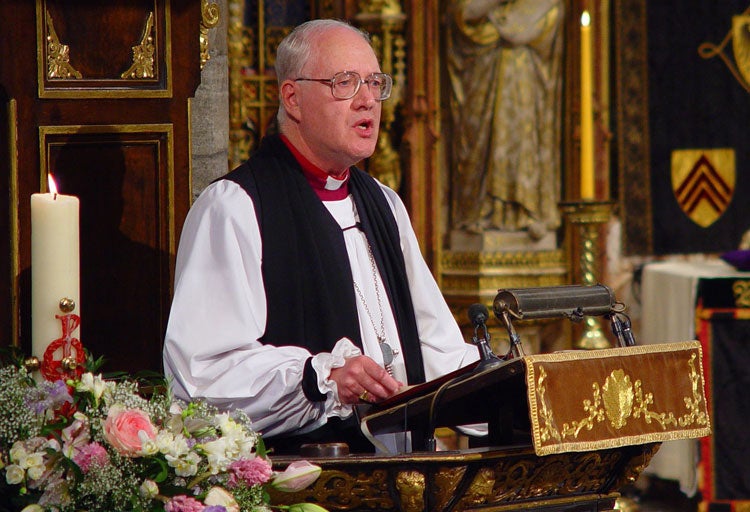Former archbishop attacks Pope for Anglican overtures
Lord Carey says lack of consultation on Rome's invitation to Anglo-Catholics is 'inexcusable'

The former archbishop of Canterbury criticised the Roman Catholic Church this weekend, branding as "inexcusable" its failure to consult leading Church of England clergy on the Pope's invitation for Anglo-Catholics to join him.
Lord Carey gave a cautious welcome to the proposals from Rome but said he was "distressed" that his successor had received just two weeks' notice of them.
He said that the move by Pope Benedict XVI could help clergy in the Church of England who were unhappy with the ordination of women bishops.
However, he urged the current Archbishop, Dr Rowan Williams, to protest at the lack of consultation.
He told the Today programme on BBC Radio 4: "I would protest and say what we must do is to work closely together, and I gave the example of 10 or 15 years years ago when we were ordaining women as priests.
"My views are predicated on one little word: 'if'. I don't know the details, but if my successor was only informed about this two weeks ago then I think this is quite distressing.
"We are closer together, we share offices – ecumenical offices – in many dioceses and so on. There was really no need for it to be done in this kind of way."
He added: "I was very surprised by the way this was done, not the action itself. I think we ought to give this a cautious welcome."
Dr Williams said earlier last week that he had been informed of the move at a very late stage, but said he did not see it as an act of aggression by the Catholic church.
He added that it would be a "serious mistake" to view it as a response to the difficulties within the Church of England.
Lord Carey, who stepped down as archbishop of Canterbury in 2002, said he wanted unity between the churches and thought the Church of England would be poorer and weaker without the Anglo-Catholics.
He added that the Church of England must not be treated as the "junior partner" in the process.
"Somehow we've managed successfully over 400 or 500 years to provide a service to the nation.
"This will, of course, continue. We do need the [Anglo-Catholics] with us and I hope they look very carefully at what is being offered.
"I'm all for ecumenism. This could be a fresh start for our failing ecumenical initiatives. I give it a cautious welcome.
"I do want to say that I am in no way trying to do Rowan's job."
Under the proposals, announced on Tuesday, Anglican congregations could join the Catholic church en masse rather than forming small, breakaway churches.
Married Anglican priests choosing to convert to Catholicism would be permitted to be ordained as Catholic priests but would be unable to become bishops. Up to 50 Anglican bishops worldwide are expected to convert.
The Apostolic Constitution that was approved by the Pope would allow Catholic parishes to join "personal ordinariates" for former members if the Anglican church. These would preserve elements of Anglican traditions and would be supervised by an ordinary – a senior clergy member taken from the Anglican church.
The introduction of women and openly gay priests in the Church of England caused the resignation of more than 400 members and the desertion of thousands of members of the worldwide communion in England, Australia and America.
Matters of faith: The great divide: how the churches differ
Catholicism does not allow the ordination of women. It is permitted in strands of the Anglican communion. The Church of England voted in favour in 1992.
Catholicism considers the use of contraception a sin in that it denies life and God's will. The Anglican church does not regard it as a contravention of God's purpose.
The Catholic church does not recognise divorce, saying that marriage is ordained by God and is a binding, lifelong commitment.
The Anglicans say that marriage is a lifelong commitment under God but that civil law must deal with the consequences of a marriage's breakdown.
Catholic priests take a vow of celibacy. The Anglican church allows members of the clergy to marry and have children.
Pope Benedict XVI has called homosexuality "a moral evil".
The Anglican stance is that those who enter into homosexual relationships should be respected.
Catholics believe that it is a mortal a sin to choose not to go to Sunday Mass. Anglicans see Mass or communion as a means to an end rather than a duty of faith.
Join our commenting forum
Join thought-provoking conversations, follow other Independent readers and see their replies
Comments
Bookmark popover
Removed from bookmarks